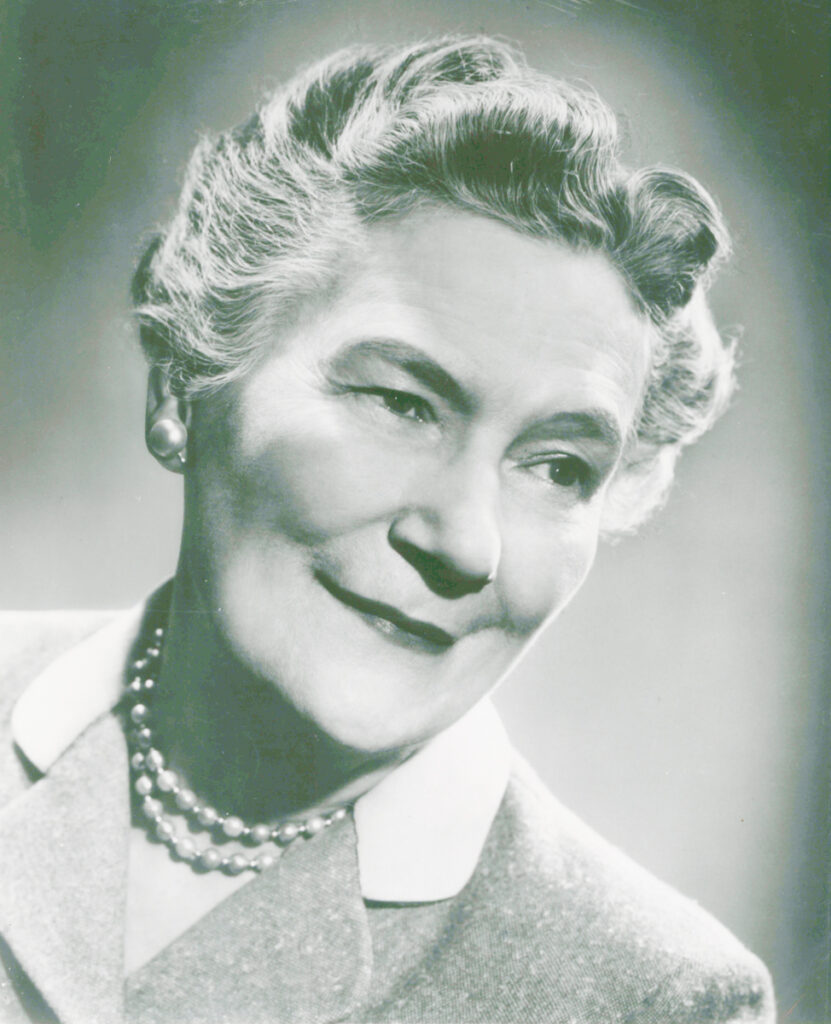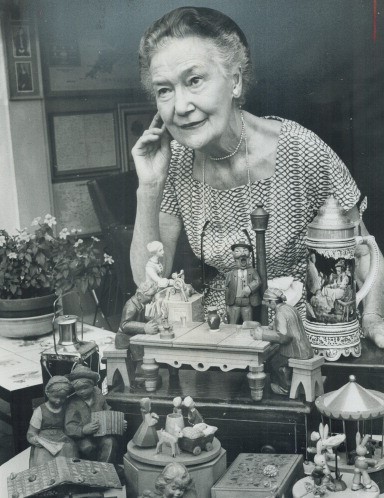Kate Aitken rise as one of Canada’s first international influencers was smooth as butter.
Butter tarts to be precise.
Her recipe was sublime – as was her rhubarb relish, roast chicken and something called Wacky Cake.
Aitken – or Mrs. A as she was known to her legions of fans – was the original lifestyle influencer, with a reach that extended coast to coast to coast.
At her height, Mrs. A had an estimated three million listeners, and she employed 21 secretaries to answer her fan letters – about 260,000 annually.
And she ran it all from Sunnybank Acres, her 10-acre property on Mississauga Road, just north of Burnhamthorpe.
Aitken was Canada’s most famous female broadcaster from the 1930s through to the late 1950s – and her popularity was so strong that her cookbooks are still sought after by home cooks.
She was born the fifth of seven children to Robert and Anne Scott on a farm in Beeton, ON, a rural community in Simcoe County southwest of Barrie.
She always had a knack for entrepreneurship, likely thanks to helping out at the family’s general store, where in addition to working the cash and stocking shelves, a young Kate wrote the store’s weekly advertisements.
In 1903, at the age of 12, Aitken rented a bicycle while on her school break and sold mail-order cosmetics door-to-door, using the money she earned – $27.85 – to purchase school books for high school.
At 14 she was working as a substitute teacher and two years later received her teaching certificate; when she was 18 she moved to Saskatchewan where she quickly learned all teachers need to carry textbooks and a saddle.
She married Henry Aitken in 1914 and by 1920, the Aitkens had settled on a farm in Beeton, where Kate Aitken, now a mom to two young daughters, established a successful poultry business – she raised two world-record holding egg-laying hens.
Soon Aitken expanded the farm to include an extensive garden, orchards and dairy products, and she became so expert at canning and preserving that the Canadian and Ontario departments of agriculture hired her to teach other farm women home economics.
And that’s when Canada’s media industry came calling.
Editors of women’s pages in daily newspapers and radio were always on the lookout for women who could speak to women and they found it in Aitken.
It was the 1930s and Canada and the United States were in the throes of The Great Depression. Aitken frugal meal planning and preparation was precisely what women need to understand as they tried to keep their families fed and well-nourished in the midst of drought and scarce dollars.


Soon people were hiring her to travel to their communities to teach. She hosted cooking schools in Montreal paid for by a local advertising company. An American railway executive hired her to establish canning centres – micro-businesses for farm women who could sell their products to the trains as they passed through, for use in the dining cars.
She talk at the Chicago Women’s World Fair – and then she landed at the Canadian National Exhibition – the CNE – who offered her a job, hosting “Country Kitchen”, a series of popular talks on canning and preserving. She would go on to become the Director of Women’s Activities at the CNE.
Aitken’s broadcasting career began almost serendipitously. In 1934 while lecturing in Prince Edward Island she was offered a radio show as an emergency replacement for an injured broadcaster. Her natural talent and engaging personality quickly made her a hit.
By the 1940s, she was one of the top personalities on Toronto’s top-rated CFRB radio, a role she held for 23 years. Her show was syndicated to other stations and eventually picked up by CBC in 1948, appearing for nine years on the Good Neighbour Show.
Mrs. A had gone national.
Aitken’s radio programs focused on homemaking subjects such as cooking and etiquette, but she was also known for her documentary journalism, for instance she interviewed world leaders like Eleanor Roosevelt and Benito Mussolini.
She even started a spa business on her property, long before ‘self-care’ became big business.
Aitken retired from broadcasting in 1957, but her work didn’t stop there. She remained active, working for the United Nations Association in Canada, volunteered at the South Peel Hospital (now the Mississauga Hospital) and serving on the CBC’s board of directors.
She also wrote columns for the Globe & Mail and continued to publish bestselling cookbooks. “Kate Aitken’s Canadian Cookbook,” was so popular it was reissued in 2004 – a testament to Aitken’s universal and eternal appeal.
Aitken passed away in 1971, at the age of 81 in Mississauga.
So the next time you savour a butter tart or enjoy a perfect potato salad on a summer’s day, remember Kate Aitken – Canada’s original influencer who helped shape Canadian tastes.
